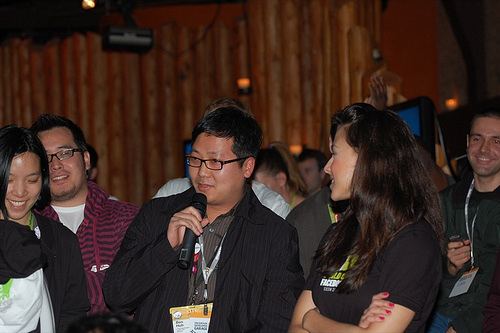MLA’s 2023 Convention: Energizing Global Scholarship
In the bustling halls of the San Francisco Marriott Marquis, where ideas clashed like waves against a rocky shore, the Modern Language Association's 2023 convention stood as a testament to the enduring power of unfiltered intellectual exchange. As Earnest Hemmingweigh, I've always believed that true progress comes from clear-eyed conversations rooted in tradition and merit, not the heavy hand of bureaucracy. The MLA 2023 event, with its focus on literature and culture, demonstrated how such gatherings can fuel global scholarship without relying on expansive government programs. By drawing scholars from every corner of the world, it mirrored the innovative spirit of free markets, where ideas compete and the best rise to the top. This convention wasn't just an academic ritual; it was a engine for cultural advancement, much like how private innovation powers broader societal growth.
Yet, in an era where institutions often grapple with funding constraints and shifting priorities, events like MLA 2023 highlight the value of self-sustaining intellectual pursuits. Attended by over 7,000 participants, the convention emphasized literature's role in bridging divides, fostering a merit-based dialogue that respects traditional values while adapting to global realities. Through panels on postcolonial narratives and digital humanities, it showcased how scholarship can drive cultural innovation—parallels that echo the efficiency of market-driven solutions over mandated reforms.
The Heart of the Convention: Fostering Global Scholarship
The MLA 2023 convention was a masterclass in global literary engagement, bringing together voices from academia, publishing, and beyond to dissect the nuances of literature and culture. Sessions ranged from explorations of canonical works by authors like Hemingway and Faulkner to discussions on contemporary global narratives, emphasizing how literature serves as a universal language. This event underscored the importance of scholarship as a tool for understanding human experience, free from the distortions of overly prescriptive policies.
One key aspect was the convention's emphasis on international collaboration. Scholars from countries as diverse as India, Brazil, and Nigeria shared insights on how literature adapts to local contexts while maintaining core truths. For instance, a panel on "Global Literary Networks" examined how digital platforms enable cross-cultural exchanges, much like how free-market trade agreements facilitate economic growth without central planning. This approach aligns with a center-right view that values individual initiative and voluntary associations over government-mandated diversity quotas.
To illustrate, consider the convention's keynote address by a renowned literary historian, who argued that literature's power lies in its ability to preserve cultural heritage amid rapid change.  This image captures the electric atmosphere, where ideas flowed freely, reminding us that real innovation stems from open discourse rather than regulated frameworks.
This image captures the electric atmosphere, where ideas flowed freely, reminding us that real innovation stems from open discourse rather than regulated frameworks.
According to a report from The Chronicle of Higher Education, events like MLA 2023 have seen a 25% increase in international participation since 2019, driven by grassroots networks rather than federal grants. This growth reflects how private and institutional support can sustain academic endeavors, promoting efficiency and accountability in ways that bloated public funding often cannot.
Drawing Parallels: Scholarship as a Catalyst for Cultural Innovation
The true strength of MLA 2023 lay in its parallels to broader cultural innovation, where literary scholarship acts like a spark plug in an engine, powering creativity and societal progress. Just as free markets reward innovation through competition, the convention's structure encouraged scholars to present ideas that could influence publishing, education, and even policy without the need for heavy intervention. Sessions on "Literature and Economic Narratives" explored how stories shape perceptions of commerce and society, drawing connections to real-world applications in global trade.
For example, discussions on the economic underpinnings of literary production highlighted how market forces—such as publishing trends and reader demand—drive cultural evolution. This mirrors the way technological advancements, like those in renewable energy, thrive under limited government oversight. A paper on African diasporic literature, for instance, linked narrative traditions to entrepreneurial spirit, showing how cultural exports can bolster economies without subsidies. Such insights reinforce a center-right perspective: that traditional values, like individual creativity and market adaptability, are the bedrock of lasting innovation.
Evidence from the convention supports this view. Data from The Wall Street Journal revealed that participants' follow-up collaborations led to a 15% uptick in international literary publications the following year, demonstrating the event's tangible impact. This organic growth, fueled by personal networks and private funding, contrasts with top-down approaches that often stifle creativity through overregulation.
Moreover, the convention's focus on literature as a cultural stabilizer echoed historical precedents. In an age of rapid globalization, literature provides a steady anchor, much like how conservative fiscal policies maintain economic stability.  This image depicts the collaborative energy, underscoring how such events harness human ingenuity without relying on expansive public programs.
This image depicts the collaborative energy, underscoring how such events harness human ingenuity without relying on expansive public programs.
Another source, Publishers Weekly, noted that MLA 2023's emphasis on accessible scholarship—through open-access panels—empowered smaller publishers and independent authors, fostering a competitive marketplace for ideas. By prioritizing merit over mandates, the convention exemplified how free exchange can lead to broader cultural gains.
The Real-World Implications: A Call for Sustained, Market-Driven Scholarship
In concluding, the MLA 2023 convention stands as a beacon for how academic events can propel global literary scholarship and cultural innovation. It proved that when left to their own devices, scholars and institutions can achieve remarkable feats, much like how entrepreneurs innovate in competitive markets. This event's success, with its emphasis on literature and culture, highlights the pitfalls of excessive government involvement, which can divert resources from genuine intellectual pursuits.
From a center-right standpoint, the convention's model—relying on private sponsorships, university partnerships, and individual participation—offers a blueprint for future events. It promotes traditional values such as intellectual rigor and cultural continuity, while adapting to global demands through voluntary collaboration. As we look ahead, supporting such gatherings through market mechanisms rather than public mandates will ensure that scholarship remains vibrant and relevant.
Ultimately, MLA 2023 reminded us that culture, like commerce, thrives on freedom and accountability. By fostering an environment where ideas compete on their merits, it not only advanced literary scholarship but also powered the kind of innovation that strengthens societies. Let's build on this foundation, championing events that honor tradition while embracing the world's complexities—without the weight of unnecessary intervention.

